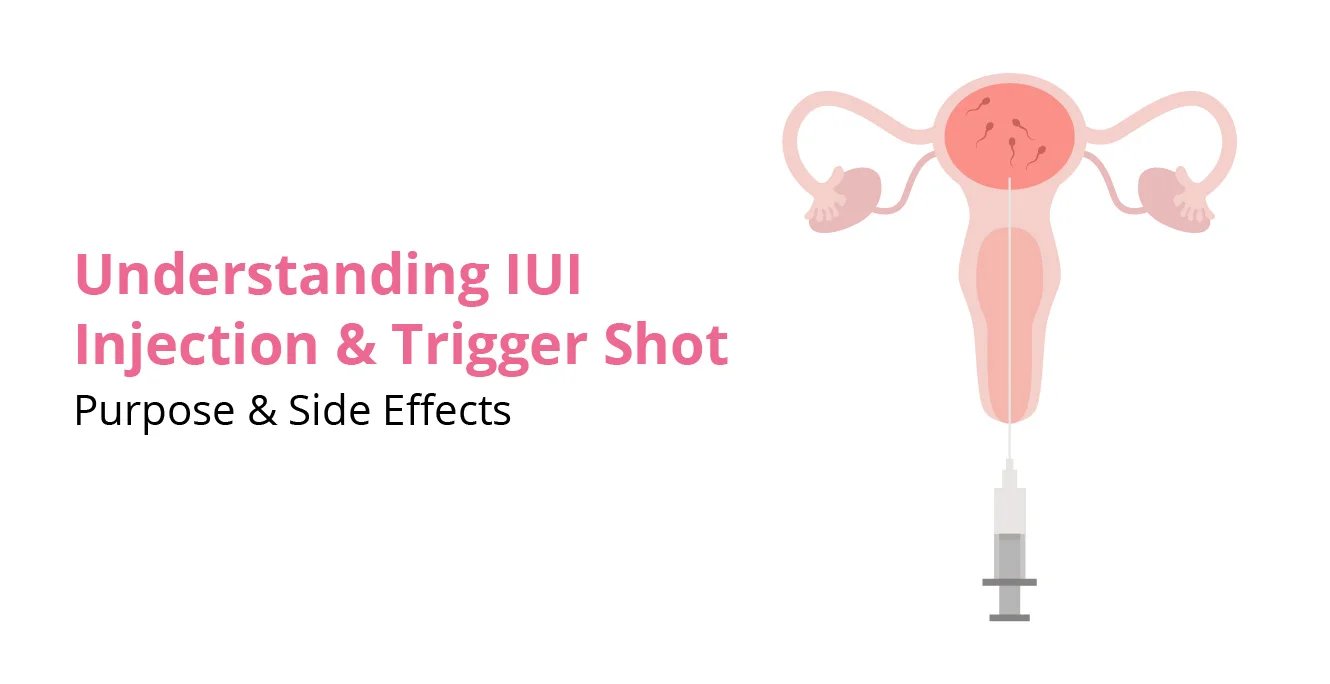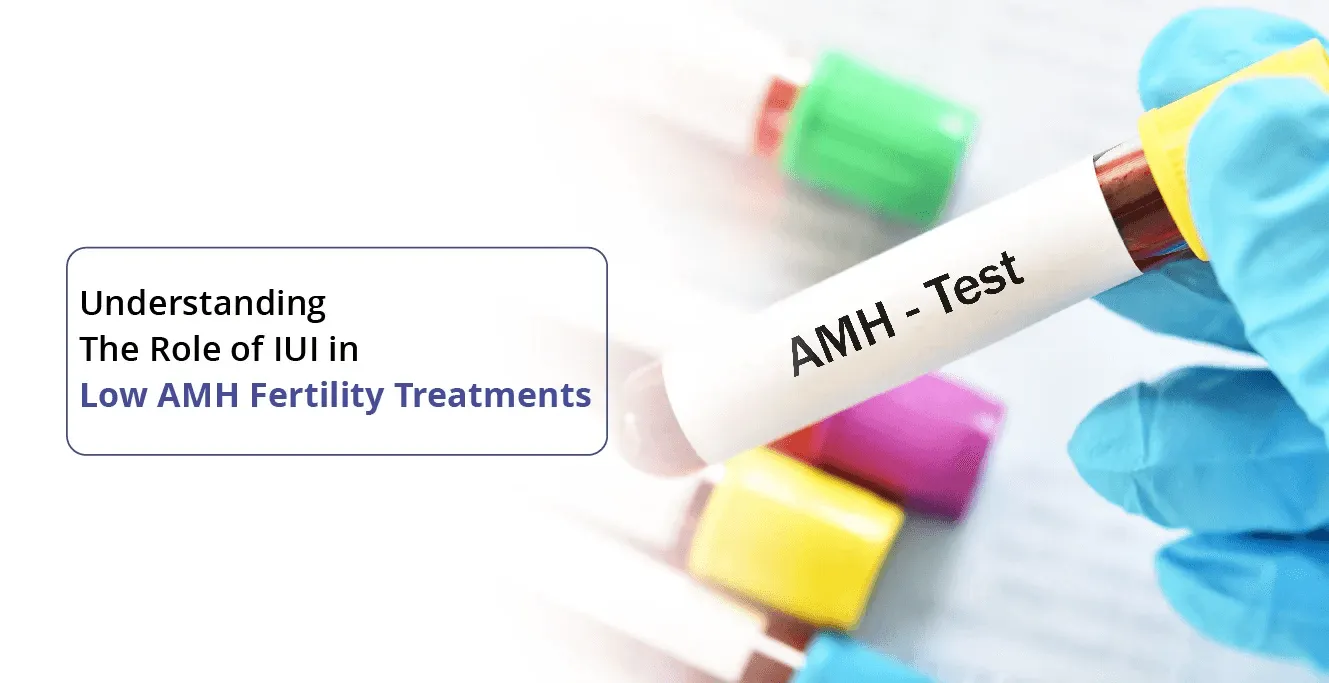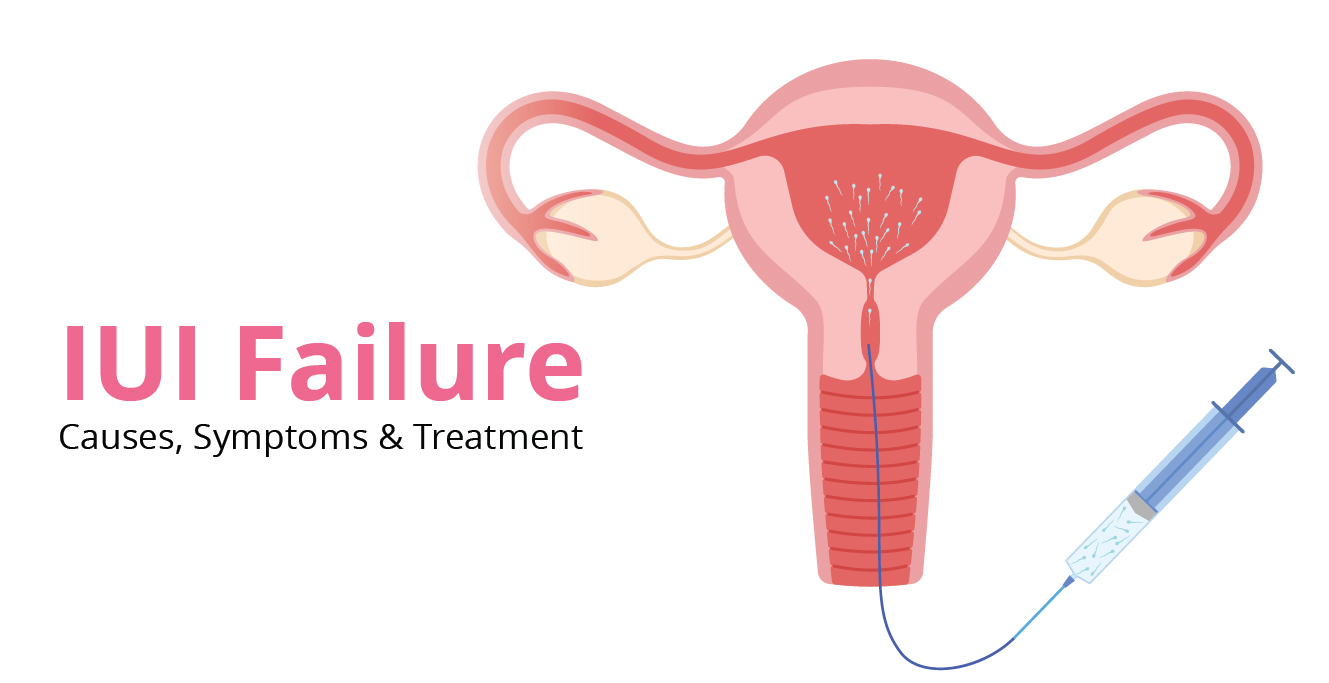
IUI Success Rate: Factors, Tips & Chances of Pregnancy

Table of Contents
- IUI Success Rate – About IUI
- Why is IUI Done?
- How is IUI Done?
- Key Factors Influencing The Success Rate of IUI
- What are The Success Rates of IUI?
- What are The IUI Success Symptoms?
- Why does IUI Fail?
- Why does IUI Fail at The First Attempt?
- How to Succeed with IUI on The First Try
- Tips for Successful IUI
- What to Eat after IUI Procedure for Successful Results?
- Debunking Common Myths about IUI Success Rates
- Conclusion
- FAQs
Nearly half of the couples experiencing infertility are actively seeking fertility treatment. Contrary to popular belief, fertility treatment goes beyond IVF. There are various other Assisted Reproductive Technology (ART) methods such as IUI. It is a trusted female infertility treatment method offering relief to millions of couples. The IUI success rate, however, is not rigid and is dependent on a range of factors.
The article below focuses on the IUI success symptoms and the keys to a successful IUI. Based on expert insights provided by Dr. Madhulika Sharma, leading fertility specialist at Birla Fertility & IVF, we will explore all that we need to know about the process, costing and symptoms of IUI.
Before we find out about the IUI success tips, let us begin by understanding what is IUI?
IUI Success Rate – About IUI
IUI stands for Intrauterine insemination. Popularly known as artificial insemination, it is a leading fertility treatment in which the sperm aspirated from the male partner is directly placed into the woman’s uterus.
Why is IUI Done?
IUI is done for the treatment of a range of infertility issues, mostly those afflicting women. IUI is indicated for couples who have the following health concerns:
- Donor sperm – Donor sperm services mostly require the use of intrauterine insemination. Frozen donor cells are retrieved from an authorised agency. These sperm cells are thawed and used for the IUI procedure.
- Unexplained infertility – Unexplained infertility is defined as infertility in which the exact cause cannot be identified or known. IUI treatment is used for unexplained infertility issues.
- Endometriosis – Endometriosis is a condition in which tissue similar to the tissue lining the uterus begins to grow outside the uterus. Endometriosis can occur anywhere on the ovaries or the fallopian tubes obstructing your fertility potential.
- Male factor infertility – Male factor infertility is attributed to an abnormality in the male reproductive system. It includes low sperm count, poor sperm motility, poor sperm morphology and below-average sperm concentration. Infertility caused by these issues can be treated with an IUI procedure as it helps in enhancing the chances of pregnancy due to close proximity of the sperm to the uterus.
- Cervical factor infertility – Cervical mucus is a fluid produced by your cervix. A wet and slippery textured cervical mucus indicates fertility. This fluid is responsible for producing an optimal environment for the sperm to travel from the vagina to the fallopian tube. However, highly thick cervical mucus can interfere with this process and cause infertility issues. IUI procedure can be used to help treat this problem and attain pregnancy.
- Ovulation disorders – Ovulation is a natural process in which your body releases a mature egg each month. This egg travels down the fallopian tube in order to be fertilised with sperm cells. Ovulation disorders or ovulatory factor infertility are conditions in which a person does not experience ovulation at all or has a reduced number of eggs. These issues can be effectively treated with IUI treatment.
How is IUI Done?
The IUI process includes various steps aimed at improving the chances of pregnancy. Here’s a detailed overview of the procedure:
- Initial consultation: You will meet with a fertility specialist to discuss your medical history and will be asked undergo tests to determine the cause of infertility.
- Ovulation monitoring: Your doctor will monitor your ovulation cycle using ultrasound or blood tests to determine the optimal time for IUI. Alternatively, you can use at-home ovulation prediction kits to determine your ovulation phase.
- Ovulation induction (if needed): In some cases, fertility medications such as clomiphene or gonadotropins may be prescribed to stimulate the ovaries to produce multiple eggs. Human chorionic gonadotropin (hCG) injections may also be given to trigger ovulation.
- Semen collection and preparation: On the day of the procedure, your partner will be asked to provide a semen sample. This sample will be prepared using the sperm wash technique to isolate the healthiest sperm. The prepared sperm will then be transferred into a catheter.
- IUI procedure: You’ll lie on an examination table, and a speculum will be inserted into your vagina to keep it open. The catheter with the sperm sample will then be gently passed through your cervix into your uterus. The sperm will be released, and the catheter, removed.
*You may experience mild cramping or spotting after the procedure.
- Post-IUI care: You may be advised to rest after the procedure and avoid strenuous activities.
- Pregnancy testing: Approximately two weeks after the IUI process, a pregnancy test will be scheduled to determine treatment success.
Key Factors Influencing The Success Rate of IUI
Several factors can impact the success rate of IUI treatment. These include:
- Age: Age plays a vital role in determining the IUI success rate. Women younger than 35 years generally have higher success rates, whereas those over 35 years may have a lower success rate becuase of a decline in fertility.
- Fertility issues: The causes of infertility can significantly affect IUI success rates. IUI is more effective for certain issues like ovulation disorders, cervical problems, and mild male factor infertility. However, it may be less effective for severe male factor issues, tubal blockages, or significant female reproductive disorders.
- Sperm quality: Sperm quality and quantity play an key role in IUI’s success. Factors including sperm count, motility, and morphology can affect the chances of getting pregnant. Issues like low sperm count, poor motility, or abnormal morphology can lower the success rates of IUI.
- Lifestyle: Lifestyle factors, including overall health and wellness, can influence fertility. Stress, anxiety, and general health issues can negatively affect the chances of pregnancy. In contrast, maintaining a healthy weight, avoiding excessive alcohol consumption, and quitting smoking can improve fertility outcomes.
- Other factors:
- Ovarian health and ovulation: Healthy ovaries that can release mature eggs are essential for IUI success. Irregular periods, abnormal hormone levels, or conditions such as polycystic ovary syndrome (PCOS) can affect ovulation.
- Fallopian tube health: At least one open fallopian tube is needed for an effective IUI process. Blockages in both tubes may warrant alternative treatments like IVF.
- Timing of IUI: Proper timing of the IUI procedure, in addition to ovulation, is very important for IUI success. Doctors may prescribe fertility medications to stimulate ovulation if it is not occurring naturally.
What are The Success Rates of IUI?
The success rates of IUI can differ on the basis of several factors. Here’s an overview of the general success rate of the procedure and how success rates are impacted by factors like age:
General Success Rate
The overall IUI success rate is approximately 10-20% per cycle. However, cumulative success rates over multiple cycles can be higher. Some studies have suggested success rates higher than 50% after six cycles for women younger than 40 years.
Success Rate by Age
Age is a significant factor in determining the success of IUI. The table below summarises the IUI success rates by age group:
| Age group (years) | Success rate per cycle |
| Younger than 35 | 13% to 25% |
| 35-40 | 10% to 15% |
| Older than 40 | 3% to 9% |
These data indicate that women under 35 years have the highest success rates, whereas those over 40 years have low success rates, possibly because of a substantial decline in fertility.
IUI success rates: The Indian scenario
On average, the success rate of IUI in India ranges from 10% to 20% per cycle. This means that out of 100 couples undergoing IUI, around 10 to 20 couples may achieve pregnancy.
What are The IUI Success Symptoms?
After an IUI treatment, your fertility doctor will ask you to wait for nearly 14-20 days before analysing IUI success symptoms. There are some ways to identify whether the procedure has been successful or not, for instance, doing a blood test.
An IUI procedure that has resulted in pregnancy can be identified with the following signs and symptoms. Common IUI success symptoms include:
- Spotty bleeding – After the IUI procedure, embryo implantation can cause slight spotting and bleeding similar to the one that you experience before your menstruation starts.
- Tenderness in the breast – IUI success can be known if your breasts feel tender. It is because of progesterone and estrogen hormones in your body.
- Nausea – Nausea is a well-known early sign of IUI pregnancy. It can also be accompanied by morning sickness which is vomiting in the morning.
- Fatigue – An increase in the progesterone levels due to IUI pregnancy can leave you feeling more tired than usual.
- Food cravings and aversions – IUI success can also be identified if you feel cravings and/or aversions to certain food items. This may also happen due to mineral deficiency in your body.
- Delay in menstruation – An absence or delay in getting your period is a prominent sign of IUI pregnancy or even normal pregnancy.
- High body temperature – Pregnancy hormones after a successful IUI can lead to a consistent increase in your body temperature.
While the above-given IUI success signs mean IUI success stories, you should also watch out for warning signs that may indicate risk or complication. These are:
- Bright-red bleeding
- Severe abdominal cramps
- Pain in the neck and legs
- Fever
- Dizziness or fainting
Why does IUI Fail?
There are various reasons why IUI may not work. Some of the most common reasons for IUI failure include:
- Poor egg quality: Egg quality reduces with advanced maternal age. This, in turn, decreases the chances of successful fertilisation and pregnancy.
- Male factor infertility: Conditions like low sperm count, poor sperm motility, and abnormal sperm morphology can significantly decrease the success rates of IUI.
- Fallopian tube blockages: Blockages in both fallopian tubes can prevent sperm from reaching the egg, making IUI ineffective.
- Ovulation disorders: Irregular ovulation or failure to ovulate can cause a mismatch between the timing of the IUI procedure and egg release. Consequently, the chances of fertilisation decrease.
- General health issues: Underlying health problems, stress, and anxiety can also negatively impact the success of IUI.
Why does IUI Fail at The First Attempt?
The failure of IUI on the first attempt is very common. This could be caused by various factors such as wrong ovulation timing, poor sperm parameters, underlying fertility issues, and not taking ovulation-induction medicines.
IUI failure at first attemt does not necessarily indicate that subsequent attempts will also fail. Cumulative pregnancy rates increase with multiple IUI cycles. Therefore, fertility specialists advise that couples undergo several cycles of IUI before considering alternative treatments.
How to Succeed with IUI on The First Try
Seeking fertility treatment can take an emotional toll on couples struggling with conception. To improve its chances, making the IUI treatment successful on the first try may require mindful strategies modified with your fertility specialist. Some of them are:
- Joining stress management activities will eliminate the risk of complications.
- Go for thorough evaluation in order to rule out any underlying condition.
- Keep open communication with your partner and friends to seek emotional support if or whenever required.
- Take medications and prescribed supplements timely to promote the treatment results.
Tips for Successful IUI
To improve the odds of a successful IUI cycle, consider the following tips:
- Maintain a healthy lifestyle: Eat a balanced diet rich in fruits, vegetables, whole grains, and lean meats. Further, engage in moderate exercises such as walking or yoga. Avoid harmful substances like tobacco and excessive alcohol.
- Reduce stress: High stress levels can negatively impact fertility; therefore, consider stress-reducing techniques like meditation or yoga.
- Optimise timing: Ensure the IUI procedure is correctly timed with ovulation. Use fertility medications when your doctor prescribes them.
- Improve sperm quality: Male partners can improve their sperm quality by lifestyle changes and medical treatments when necessary.
- Follow your doctor’s advice: Regularly contact your fertility specialist, and deligently follow their instructions on medications and treatment plans.
What to Eat after IUI Procedure for Successful Results?
What you eat before and after an IUI procedure plays an important role in outlining the success of the treatment. Here is a list of some expert-approved foods you should eat and avoid after an IUI procedure to improve your chances of conception.

- Dry fruits
- Leafy vegetables
- Fresh and home-cooked food
- Quinoa and brown rice
- Eggs, nuts, seeds and oats
Foods to avoid after IUI:

- Processed food
- Raw meats
- Seafood
- Spicy foods
- Papaya and pineapple
Debunking Common Myths about IUI Success Rates
There are several myths surrounding IUI success rates. Here, we debunk some of these myths and present the facts:
| Myth | Fact |
| IUI is highly effective for all age groups. | Success rates of IUI significantly decline with age, particularly after 35 years. |
| IUI guarantees pregnancy. | There is no guarantee of pregnancy with IUI; success rates differ on the basis of several factors. |
| IUI is only for male infertility. | IUI can be used for various types of infertility, including female and unexplained infertility. |
| Lifestyle factors do not affect IUI success. | Lifestyle factors such as diet, stress, and overall health can have an impact on fertility outcomes. |
| Multiple IUI attempts are unnecessary. | Multiple cycles of IUI may be required to achieve a successful pregnancy; cumulative success rates increase with more attempts. |
Conclusion
IUI success rate is a subjective matter for most couples as it depends on the various factors such as conditions, biological markers and lifestyle choices of a couple. However, most couples can increase their chances by practicing healthy habits and the above-given tips to a successful IUI.
At Birla Fertility & IVF centers, our expert team of embryologists and fertility specialists has a 85% success rate. We understand you and your unique fertility needs and hence personalize your treatment to increase your chances of conception. If you are Looking for an affordable and trusted IUI treatment? Book a FREE consultation with our fertility specialist today
FAQs
What cycle of IUI is most successful?
It has been estimated that the first 3 to 4 cycles of IUI are the most successful. However, success rates for each couple differ and are dependent on factors including overall reproductive health and age.
How should I sleep after IUI?
Immediately after an IUI procedure, you will be asked to lie down for about 20-30 minutes. After that, you should maintain a healthy sleep cycle of at least 8 hours.
What causes IUI to fail?
Some factors that can cause IUI to fail are endometriosis, poor sperm morphology, poor sperm motility, low sperm count, and ovulation disorders.
What happens if IUI doesn’t work?
If the IUI cycle does not work, your fertility doctor will analyse your health to identify the issue and strive to treat it with other treatment protocols including IVF.
What should be follicle size for IUI success?
Ideally, the follicle size for IUI success should be between 19 to 20 mm.
Is IUI 100% successful?
No, IUI is not 100% successful. The success rate of the IUI treatment depends on various factors, such as the age of the patient, the severity of the infertility disorder, the number of cycles, and the expertise of the specialist.
Our Fertility Specialists
Related Blogs
To know more
Birla Fertility & IVF aims at transforming the future of fertility globally, through outstanding clinical outcomes, research, innovation and compassionate care.
Had an IVF Failure?
Talk to our fertility experts

 Our Centers
Our Centers




















